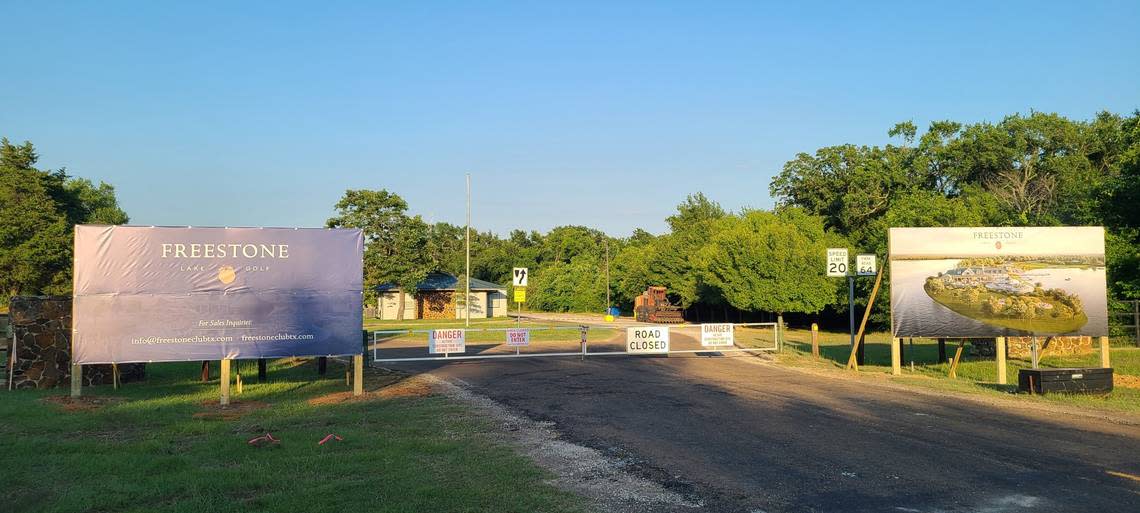State ineptitude cost us Fairfield Lake park. Here’s how Texas can make good on it | Opinion
Texans are losing a state park. Blame 50 years’ worth of missteps by public officials.
The saga of Fairfield Lake State Park, which came to an abrupt, surprising end Tuesday, had all the hallmarks of government ineptitude: poor planning, lack of foresight, inertia and a clumsy scramble to please a disappointed public — or at least make the mess look a little better.
Fairfield Lake is the state park that lies on borrowed land about halfway between Dallas and Houston. The energy company that owned the land, Vistra Corp., decided to sell. A Dallas developer stepped in months ago with an ambitious plan for a swanky private community. The state Parks and Wildlife Commission, unable to compete in the market, exercised property-seizure powers to take the land, after five decades in which it never occurred to any elected official or hired bureaucrat to secure it.
There was just one problem: This is still America, and taking the land requires fairly compensating the owner. State officials underestimated the land’s value by about a factor of five, and can’t afford the $418 million that a panel of local property owners ruled it would have to pay the development company, Todd Interests.
So, staring down the barrel of a long, expensive legal battle, the Parks and Wildlife Department folded, announcing with Todd Interests on Tuesday that the eminent domain fight would cease. Fairfield Lake State Park is a goner.
In retrospect, it’s far-fetched that state officials believed the land was worth just $85 million, the amount they proposed in compensation. The more likely scenario is that eminent domain was a gambit designed to convince the public that the state had done everything it could, which is pretty laughable after so many years of inaction.
And if not, if the offer was legitimate, let’s get some better property assessors over there, pronto.

After all, plenty of local officials and residents in Freestone County saw the value of developer Shawn Todd’s proposal for a gated community. They saw increased property values, growth and business opportunities, and they wanted it.
Setting those against the intangible losses of a popular recreation spot is not easy. You can’t put a dollar value on the benefits of the hiking, fishing and enjoyment of nature that so many Texans experienced at Fairfield Lake. That’s why the state needs to make sure this never happens again.
First, the Parks Department — or if necessary, the Legislature — should review every arrangement in which Texas depends on borrowed or leased land. Most of them are with other governments, federal or local, but no chances should be taken. If there’s any risk of losing another park, the state should seriously consider making an offer to buy the property. If not, it should secure a right of first refusal if the land is ever placed up for sale.
More importantly, though, Texas must be smart, yet still aggressive, about acquiring additional parkland, as well as expanding and improving current sites. Our available recreational choices have not kept pace with population growth, which isn’t slowing anytime soon. And we are increasingly recognizing, especially in an era of ever-present technology and urbanization, that people need time outdoors in nature. It’s a boon for mental and physical health.
Voters made clear their strong support for this last month. A proposed amendment to the Texas Constitution to create a $1 billion trust fund to buy parkland passed with nearly 77% of the vote.
In other words, state leaders and parks officials have a mandate for more and better parks and the money to make it happen. Let’s not wait another five decades for a crisis to develop.
Do you have an opinion on this topic? Tell us!
We love to hear from Texans with opinions on the news — and to publish those views in the Opinion section.
• Letters should be no more than 150 words.
• Writers should submit letters only once every 30 days.
• Include your name, address (including city of residence), phone number and email address, so we can contact you if we have questions.
You can submit a letter to the editor two ways:
• Email letters@star-telegram.com (preferred).
• Fill out this online form.
Please note: Letters will be edited for style and clarity. Publication is not guaranteed. The best letters are focused on one topic.
